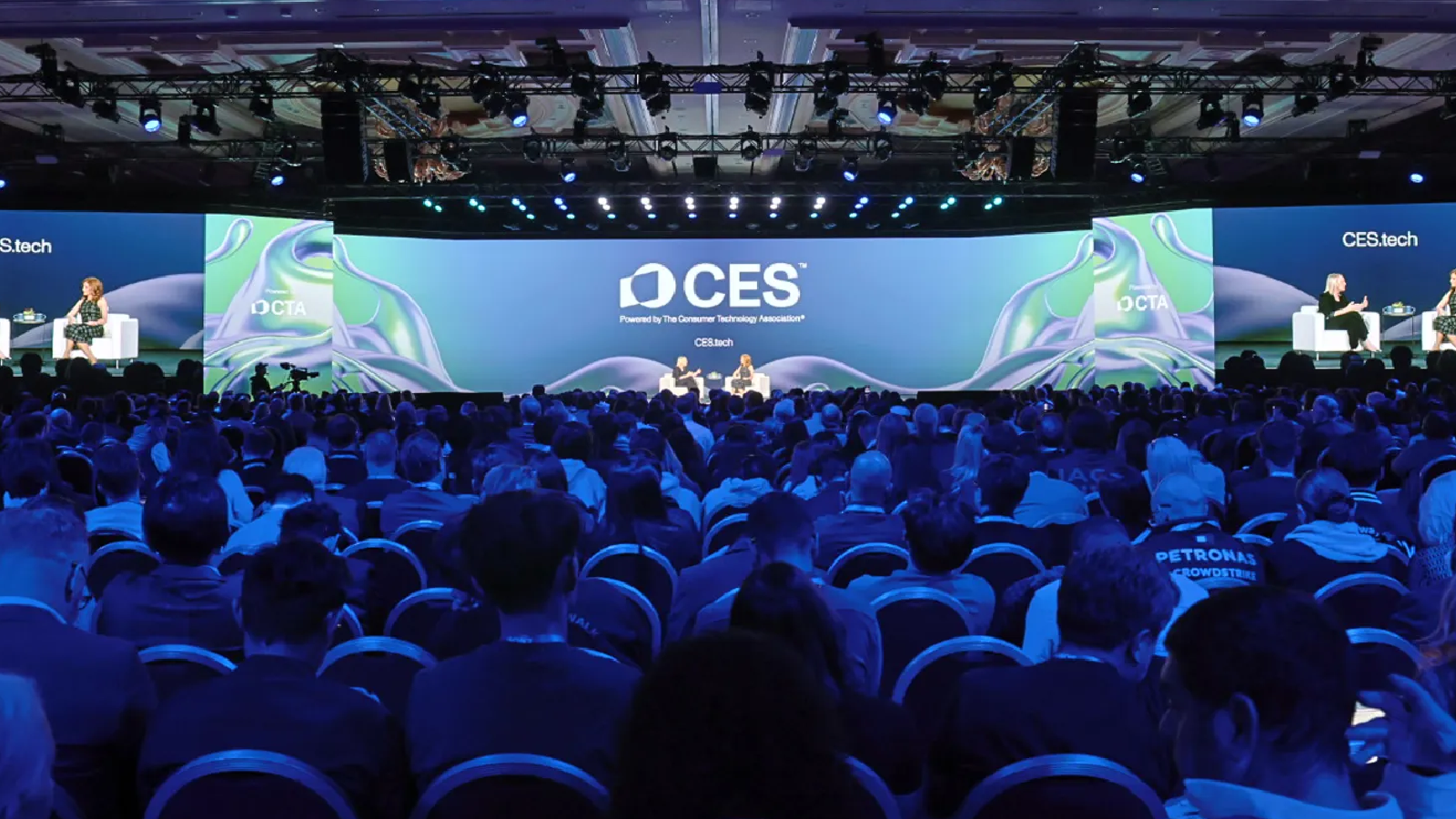Jan 23, 2025
A PropTech Perspective: Key Takeaways from CES 2025

Earlier this month, Las Vegas became the epicenter of the innovation world, hosting over 100,000 attendees for the 2025 Consumer Electronics Show (CES). Fresh off the intensive week, I wanted to distill the experience through a PropTech lens - pinpointing the advancements most relevant to the future of the built environment.
While the show floor was packed with everything from flying cars to AI-powered toothbrushes, several themes emerged that will significantly impact real estate innovation in the coming years.
Futuristic Travel Meets Real Estate: Delta's Vision
During Delta Air Lines' centennial keynote at The Sphere, CEO Ed Bastian unveiled several forward-thinking initiatives that reach beyond traditional air travel, including the announcement of a new AI concierge service and partnerships with YouTube, Uber, and Airbus. Particularly intriguing to our corner of the world was Delta’s partnership with Joby, the electric aerial ridesharing service backed by Toyota, Jet Blue, and Delta, to deploy electric air taxi service for home-to-airport transportation at Delta's New York and Los Angeles hubs. Perhaps (very) futuristic, the collaboration suggests far reaching implications for real estate and urban planning – particularly on how building design and property valuations in densely populated areas may evolve to meet shifting demands of urban air mobility.
Smart Building Standards Take Center Stage
A highlight of my week was the Matter panel discussion, which brought together key players like Amazon, Google, Bosch, and the Connectivity Standards Alliance. For those tracking the evolution of smart building technology, the numbers spoke volumes: over 100 million devices now support Matter, just two years after its launch.
While consumer smart home tech often gets the spotlight, the implications for commercial and multifamily real estate are particularly interesting. This open-source standard, backed by tech giants like Apple, Amazon, Google, and Samsung, could be a game-changer for property managers wrestling with fragmented building management systems. The panel's focus on security, durability, and seamless integration across platforms addresses many of the pain points we regularly hear from real estate operators.
Highlights from the Exhibition Floor
Walking the show floor revealed an interesting mix of innovations that could shape the future of real estate, urban centers, and living spaces. Here are some that caught my eye:
The microhaus Pro by haus.me showcased a 120-square-foot sustainable energy-efficient living pod. With a 3.6 kWh battery system and integrated water filtration, their product line ranges from a $35,000 basic Shell Version to $299,000 autonomous units with solar capabilities.
Daedong's AI Plant Box caught our eye with its smart farming applications. While designed for homes, their expansion into schools, cafeterias, and commercial settings points to interesting possibilities for sustainable urban agriculture.
EcoFlow Oasis by EcoFlow demonstrated a unique approach to AI-powered home energy management, focusing on optimization and resilience during outages.
Stay on Wheels by Rollaway presented an innovative take on mobile living spaces, combining luxury accommodations with electric vehicles. Their franchise model starting at $149,999 offers an interesting perspective on the future of flexible living.
ECOPEACE's Healing Boat showed how AI and sustainability can merge in recreational spaces, featuring autonomous navigation and water purification technology.
Holoconnects introduced their Holobox ($4,500 plus subscription), enabling full-body holographic projections - a potential tool for remote property tours and presentations.
Smart insole by KOKASIN combines location tracking with fall detection and health monitoring - potentially valuable for senior living facilities.
The Booxtory platform by Woongjin Thinkbig demonstrated how AI can make content more accessible, with potential applications for property documentation and resident communications.
Samsung's Family Hub 3.0 refrigerator showcased the evolution of smart appliances, with features like internal cameras and Instacart integration making grocery management more efficient.
Roborock Saros Z70 by Roboroc introduced their OmniGrip robotic arm for automated object handling, showing how robotics might support building maintenance and operations. The robotic arm can lift items such as socks, tissues, small towels, and sandals, with a maximum weight limit of 300 grams.
Looking Ahead
CES 2025 made it clear that the lines between traditional real estate, technology, and sustainability are increasingly blurred. We're seeing a fundamental shift in how technology can make our buildings and cities more efficient, sustainable, and user-friendly.
These innovations reinforce our conviction that we're at the forefront of a transformation in the built environment. The future of real estate isn't just about physical spaces – it's about creating intelligent, sustainable environments that enhance human well-being, adapt to individual needs while preserving our planet's resources.
The technologies showcased at CES 2025 aren't just gadgets; they're the building blocks of a smarter, more sustainable built environment. As we continue to invest in and support PropTech innovation, it's exciting to see how these technologies will reshape our built world in the years to come.
#CES2025 #PropTech #SmartHomes #Sustainability #RealEstateTech #Innovation
Tagged: metaprop accelerator, vc fund, venture capital, venture fund

